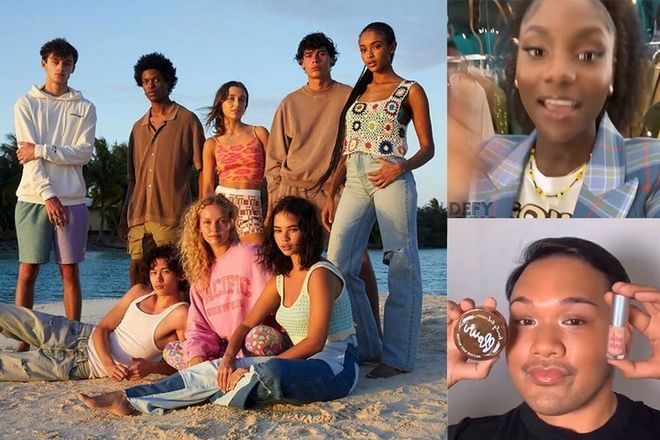Influencer marketing budgets have ballooned in recent months, with brands from Disney to MLB investing heavily in developing creators. This push to build creator bases comes as marketers continue efforts to foster more diversity, equity and inclusion in their advertising; in some cases, these creator bases are being looked upon as a place for brands to more rapidly reach these goals.
“I think it’s palpable, even with legacy brands,” Regi Cash, CEO of 3BlackDot, an influencer-driven entertainment company, said regarding representation in social media marketing. “They’ll say that they know their brand has been supported by the Black community and they want to acknowledge that.”
Influential, an influencer marketing firm whose clients include the NFL and PepsiCo, found in its first diversity audit that 90% of its campaigns last year included at least one diverse creator, nearly 50% had a majority of diverse creators, and about 20% exclusively used diverse creators.
Of course, on-screen representation is just one part of DE&I pledges, and even what constitutes a creator being “diverse” is unclear (for the purposes of Influential’s audit diverse was defined as race and ethnicity, disability, LGBTQ+ and veteran status). There are also still significant gaps and a lack of transparency in pay equity. But it appears that influencer marketing is moving faster than other areas of marketing when it comes to brands hitting DE&I pledges.
Diversity pledges
Following the killing of George Floyd at the hands of police officers in May 2020, brands pledged to allocate more of their advertising budgets toward minority-owned media. That push coincided with the boom in popularity of apps like TikTok and Snapchat, which have helped brands connect more directly to customers amid the pandemic.
In some cases, they have also served as a place for marketers to shift ad dollars that were allocated for minority-owned media channels.
Logitech was initially drawn to TikTok after learning of Black creators speaking out for not being credited as the choreographers of the app’s most viral dances. The company started the campaign #Creators4BIPOC to spotlight the challenges these creators face in getting credit for their work. The brand partnered with choreographer JaQuel Knight, who identified 10 choreographers of color on TikTok. Logitech then helped these choreographers copyright their moves, a big step in gaining credit and revenue for their work.
Logitech declined to share metrics around diversity goals, or the percentage of its creators who identify as Black.
But Meridith Rojas, Logitech’s global head of entertainment and creator marketing, said it has not been difficult to find diverse talent on platforms like TikTok and Twitter. “I don’t think there’s a lack of diversity in the upper echelons of these platforms,” she said. “If brands don’t see that, maybe they aren’t connected to the social conversation.”
Eos skincare has seen its diversity metrics grow. Before the pandemic, the company set a goal to have at least half of its creators be representative of diverse groups, and at least a third of their creators identify as Black. Now, over 60% of Eos’ influencers are people of color and over 30% are Black, according to Eos Chief Marketing Officer Soyoung Kang.
Omnicom Media Group launched its Diverse Content Creators Network last spring in an effort to help connect brands with thousands of diverse content creators across platforms, many with millions of followers. Since then, it has worked with creators including Tiara Willis, who was featured in a Burt’s Bees Twitter campaign; as well as Lauren Speed for Varo Bank. And its also working to help get creators certified to build a database of certified creators.
“With the DCN, we were able to pivot conversation from upfront pledges, to us supporting diverse voices and creators long-term. How do we generate more revenue for these creators?” said Michael Roca, managing director, DE&I investment, Omnicom.
American Eagle, Aerie, Samsung, Gatorade and McDonald’s, all of which have invested heavily in influencer marketing efforts over the past year, declined to make executives available for this story. Disney and Walmart did not respond to requests for comment.
The MLB, which also recently erected a so-called creator class, was unable to provide diversity metrics for the class because it did not ask for participants to self-identify their race or ethnicity.
“Consumers expect to see diversity within brands, especially Gen Z’ers and millennials,” said Latarria Coy, head of ethical media at Influential. “Every brand is in a different place in their journey, some more evolved than others.”
